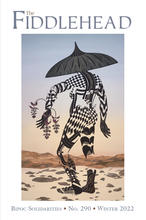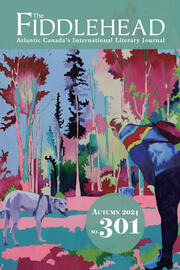2022 Fiction Contest Shortlist Announced
The Fiddlehead is pleased to announce the finalists of our 2022 Fiction Contest, judged by Chris Benjamin ! The winner of the $2000 contest prize will be announced on January 5 2023 and the winning story will appear in the Winter 2023 issue (294). Thank you to all who entered and congratulations to the finalists!

















